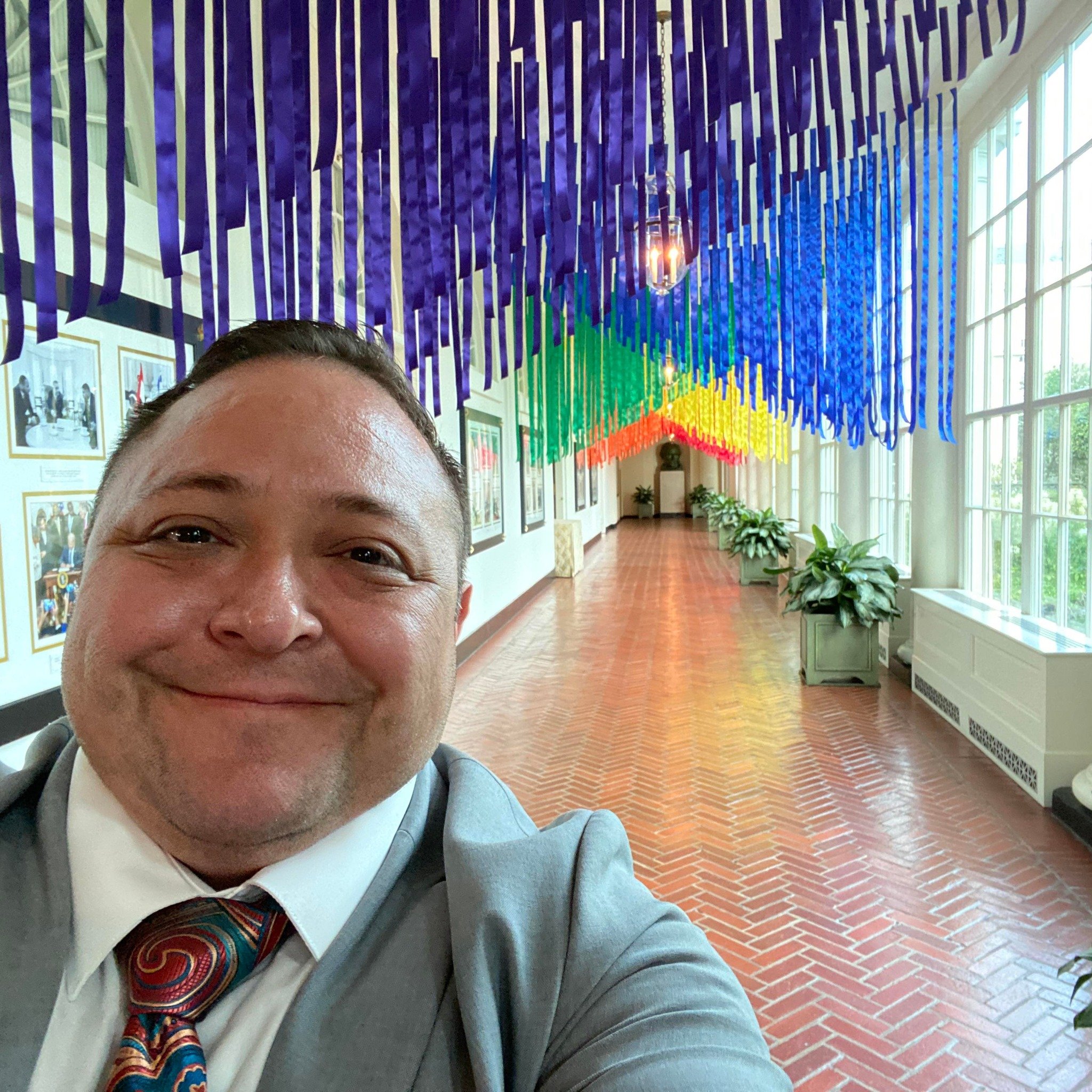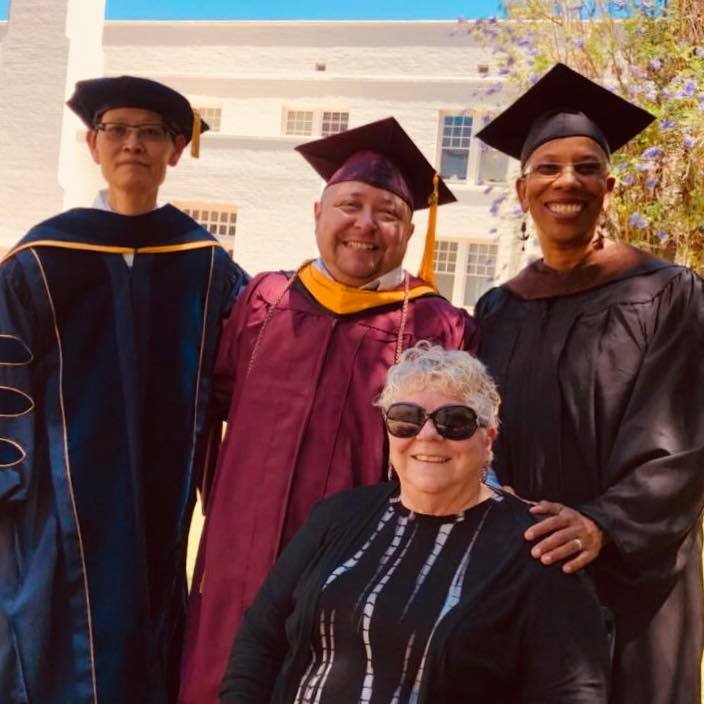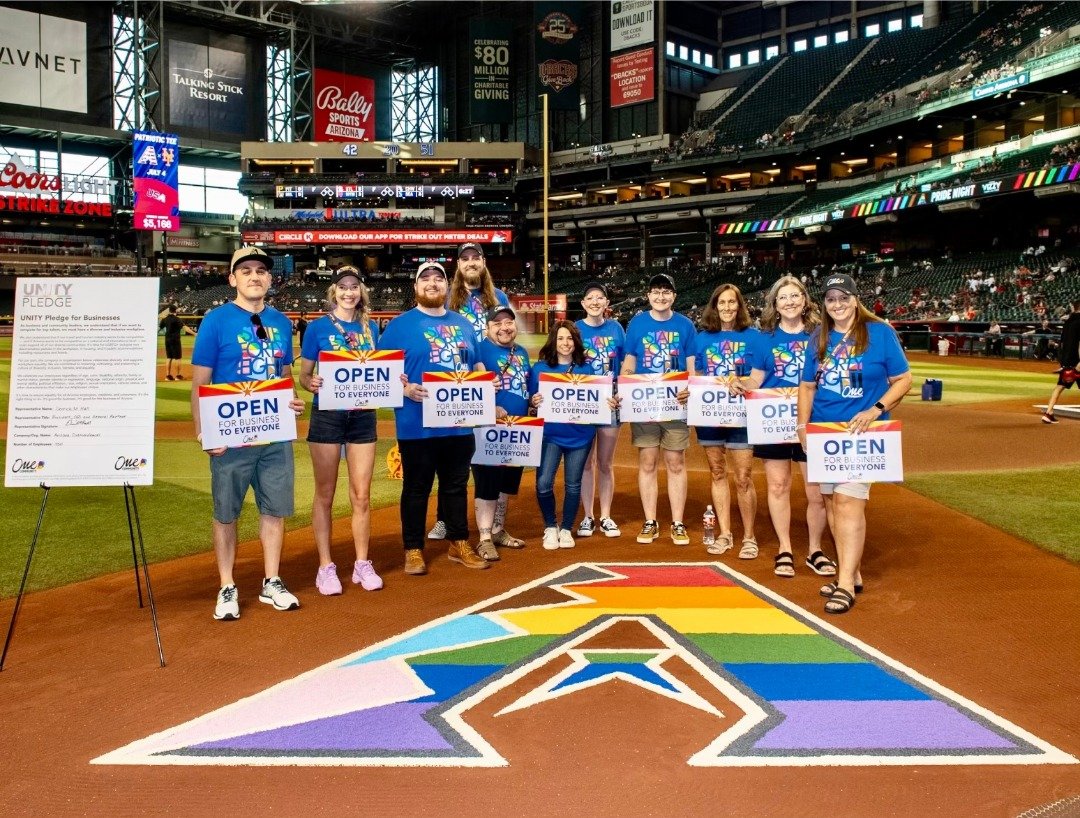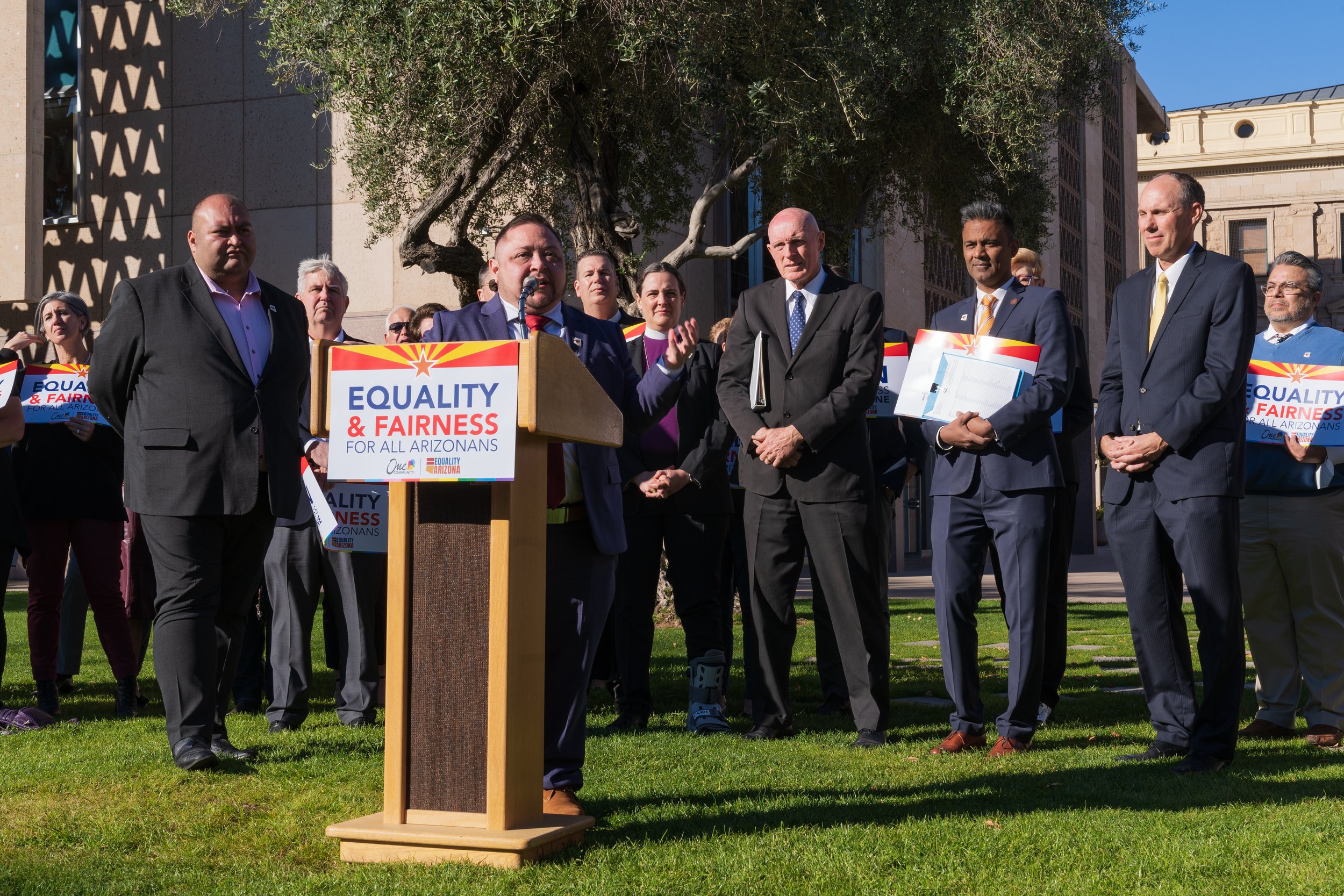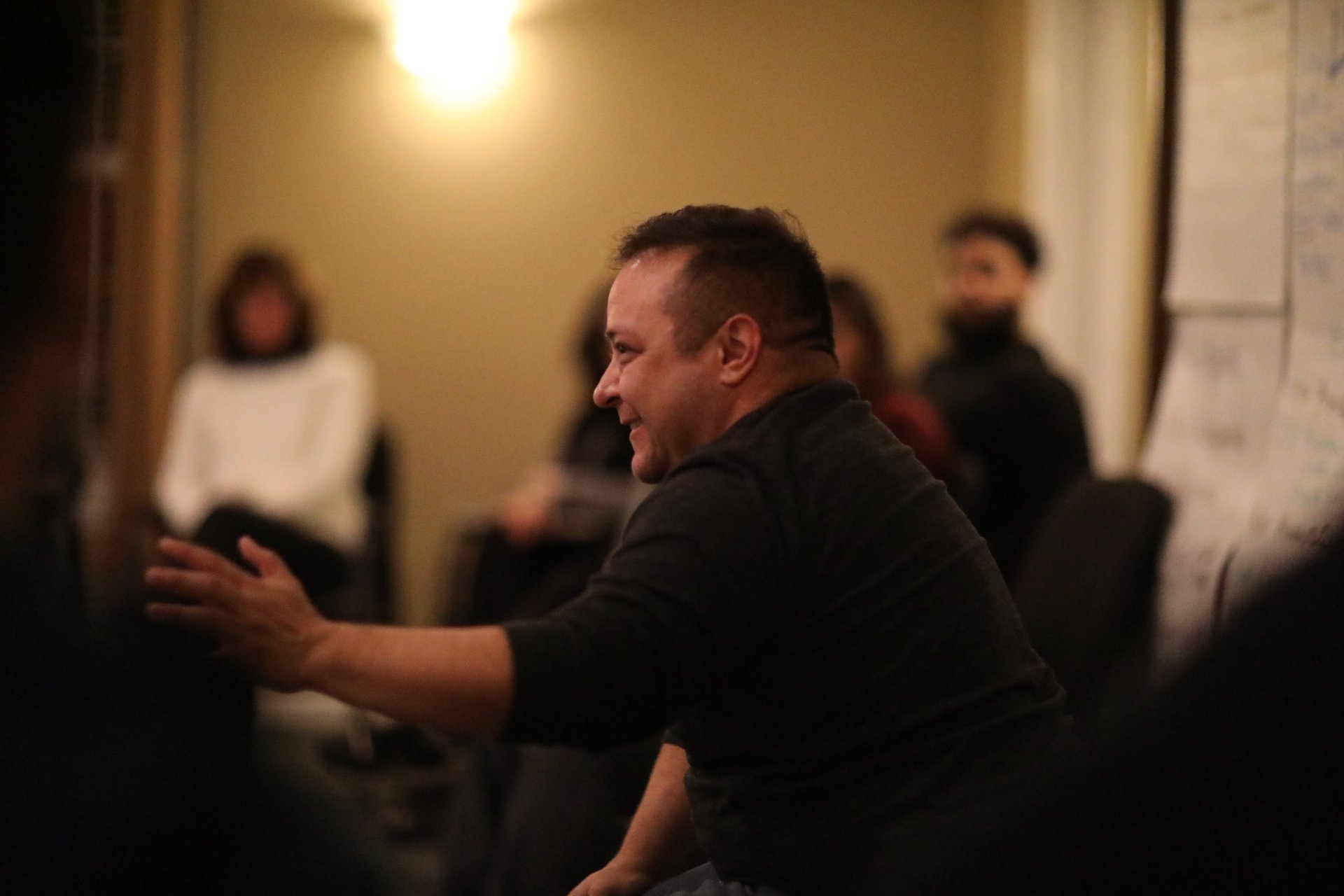MICHAEL SOTO
In light of the recent publication of the new church handbook rules regarding transgender individuals, we wanted to re-share Michael Soto's story. Michael was kind enough to include some words of encouragement to our trans members and their loved ones…
"To my transgender sisters, brothers, and siblings, our families, friends, and community members:
Every trans person has so much to offer this world, society, and the church. I know this feels like a rejection and loss for us right now, but the truth is, it is loss for the church community – because, without us, the church community is not complete, is not reflective of the full glory and diversity of God’s love and plan – because we are a part of that plan and fully live within God’s love.
These handbook changes tell me one very clear thing: the church is still learning how to care for and love transgender people as members. But the good news is that this is our opportunity as trans people and our families and friends, to teach about trans people so that someday the Church can minister to and love us. We can show the church through our actions what truly loving trans people looks like. Let’s put our shoulder to wheel and do everything we can to help our faith community grow and learn more about God’s love for all human beings."
-Michael Soto
Michael Soto’s is a name widely known and respected in the LGBTQ+ equality space. As the former director and now President of Equality Arizona, and as a political consultant for over 25 years intrinsically involved in the LGBTQ+ movement, Michael has watched the ebb and flow and now crux of policy change. After the Marriage Equality Act passed in 2015, Michael felt the pendulum swing personally as, in response, a new cultural war specifically targeting trans people has ignited across red states, with recently proposed and passed legislation causing increased polarization. As such, Michael is eager to tackle his newest endeavor—later this year, he'll be helping launch the Equality Campaign which will work with other equality groups at a national level to increase conversation, civil respect, and equality.
With his generous, hearty laugh and impressive grasp of legislative history, Michael feels uniquely qualified to reach across the aisle and have these tough conversations. It doesn’t hurt that he himself identifies as a trans man and queer individual who knows what it’s like to have grown up in a conservative regional and religious environment before the internet, when the right terminology to describe how he had been feeling since he could walk was not within reach.
Born and raised in Mesa, Arizona, Michael’s parents were converts to the LDS faith. Growing up in suburban Mesa in the 80s and 90s, Michael recalls the word “gay” was only used in a bad way or when bullying. Michael didn’t hear the word “transgender” until he was an adult, but he always knew he was different. Sunday mornings were a fight as his house as his parents tried to force him into a dress for church. He’d wail, “This is horrible! I hate this,” knowing he was a boy. He now laughs that his parents found it “cute as a boy, less cute when I got older.” School was rough, as gender divisions were part of daily life. He resisted having to step into the “girl line,” next to the boy line to walk to lunch or recess. “Girl things” were of no interest to him. When Michael’s mom bought him a Barbie dream house for Christmas, he remodeled it, installing tile floors and painting the walls; but after that, he was done with it. For as long as he can remember, Michael knew he wasn’t a girl and vocalized it in word and attire. He recalls how the women in his family would say, “Someday, you’ll grow up, fall in love with a man, have babies, and be a wife and mother,” to which he’d reply, “Heck no!” And they’d retort that he would change his mind. Now, he jokes with them, “I didn’t change my mind, did I?”
After graduating from Red Mountain High School in 1998, Michael took his hard-earned scholarship money to ASU. He’s now working on his third degree--a PhD in justice studies, which was also the focus of his master’s program. In his fourth year of his PhD program, Michael plans to analyze what’s happening in extreme movements with the current right wing authoritarian culture wars targeting trans people for his dissertation. “It’s so important to have a playbook for this stuff. Whether it’s the trans movement, or Jews in Nazi Germany, or immigrants, we know how to beat discrimination—we just need to rally the forces and educate people. I see a better path forward.”
Michael had once planned to study medicine, but at ASU, was the first trans person he knew of, and he observed how the campus was not a safe place for people like him. He was harassed in classes, where professors refused to call him anything other than his birth name and otherwise belittled him. “It was not fun,” he says. Searching for a place where he might not be attacked, he decided to major in women and gender studies, which turned out to be a great fit. As Michael had navigated what he calls his “drag years” of junior high school through his freshman year of college and observed the cultural punishment and penalties for trying to be who he was, he now started to notice gay couples on campus holding hands He says, “I thought it was really interesting and terrifying, watching from around the corner—I thought, who are these people?” Eventually, Michael found there were other LGBTQ+ people like him on campus. He went to a social group where the woman leading the meeting was “very tall.” At 5 feet tall, Michael says most people are tall to him, but he watched as this woman came out as trans to the group and defined something entirely foreign to Michael until that point. “As soon as I met a trans person in this world, I knew that’s who I am. It was exciting.”
But even in the LGBTQ+ space, Michael observed that trans was not a popular way to identify. He experienced backlash from some of his new gay friends who would tell him to “just be a butch woman.” Michael says, “It was not a convenient choice to come out and be who I am—I sacrificed a lot to be authentic and dealt with a lot of rejection from my university and friends, except my best friend, Brie, who always supported me (and is pictured in this post with Michael at her wedding). I had to pave my own path, and trust my own instincts and vision for my life. It has served me well to live a happy and authentic life. The best decision I’ve made was to pursue that medically and live authentically.”
While his family members initially struggled for years to understand Michael’s transition, he says, “They all get it now; it’s congruent and makes sense.” Michael’s mother (who he now lives with and helps care for) says she wishes she had had more resources back then so that Michael could have had a happier childhood without so much interior struggle. Michael says his mom is “so sweet and now can’t refer to me as anything but her son in childhood.” He credits his mom’s teachings and example of dedication, undying love, and hard work to making him the man he is today. He says, “I want to make a world where everyone can be respected for who they are; all should have the same protections under law. The same right to freedom. The things that make this country incredible in the course of human events include being able to be true to who you are and live life according to the dictates of your own conscience.”
As a member of the LDS church, Michael also believes, “All should worship the way they see fit, and at the same time enjoy the same rights to live their lives as fully realized humans. I’m working to get us closer to the ideas that all deserve freedom and equal protections under the law. Those things make us stronger.” While he enjoys his work, Michael says it’s hard, especially in seasons like this one. “My own experience has served me well in that I know most Americans just want others to live their lives, go about their business, contribute to society, and be people. We don’t need to demonize each other because we look differently. Our various faiths, genders, who we love, our race--all makes us stronger as a community.”
Michael struggled to connect to the LDS faith as a youth as so many of the gender-segregated practices and goals taught didn’t connect for him. He says, “I knew my future wasn’t as a woman, and I’m not good at faking things.” But as a pre-transitioned 19-year-old, Michael faced a turning point. He says, “I needed answers, I needed to see my life for itself, and I just couldn’t envision a future at that time. It felt so wrong, like such a lie.” While in Italy at St. Peter’s Basilica in Rome, while praying near the St. Peter statue, Michael felt God’s love for the first time after asking what God wanted for his life. He felt God say, “I made you to be exactly who you are.” Michael says, “That was such a powerful moment for me, not to just be who I am but to also find my faith…I feel really lucky to be trans. It’s opened every door that’s led to my happiness—my career, being seen for who I am and loved by my family and community, by God—all of that came through being a trans person.” While Michael doesn’t talk a lot about the church as he works politically with religious organizations and feels his call to focus on governmental change will hopefully trickle down, Michael values how the church instilled leadership qualities and the importance of having a moral compass as a person of worth and character.
He also says it’s fueled his fire for social justice work. Michael says, “I love the church, and I know it’s flawed. I also love our country, and also, it’s deeply flawed. People ask, ‘How can you affiliate with a church that’s not as affirming with its policies?’, and I say, ‘It’s about the journey.’ I also work in policy, and primarily with institutions who need to know LGBTQ+ people more specifically, so governments, churches, and universities can see our full humanity and incorporate kindness into making love more tangible.” Michael recognizes that local church leadership can largely determine the experience a queer member has, and is always hopeful the church will prioritize the commandments to love God and love others first. He says, “So many trans and LGBTQ people have so much offer this institution. It’s always my prayer and hope they’ll continue to honor our differences and appreciate the common ground… I have a lot of faith at the end of the day that God’s going to open the path to let LGBTQ+ people feel fully loved and valued as individuals.”
Michael identifies as queer and dates people “of any gender, race, faith, or walk of life in general.” He has been blessed to have had several loving partners who he says made him a better person, in the past, and says he’d love to find someone who shares his beliefs, and most of all, “knows themselves and is passionate about something in life.” In the meantime, Michael enjoys time with his pit bulls, FDR and Teddy (named after you guessed it), and his mom’s chihuahua, Tucker, who at 11 pounds is the boss of everyone at home. He also has close relationships with his two half-brothers’ and step-brother’s families, which include a niece and two nephews who he adores. “I have lots of wonderful family and family of choice who’ve become family.”
In his field, Michael’s studied that after society “bought into” the idea that gay marriages actually don’t weaken or devalue heterosexual marriages, the far right conducted some intentional messaging testing which revealed only about 23% of society knew they knew a trans person. “This created an opening for some of these groups like Alliance for Freedom and Moms for Freedom and Eagle Forum to organize together to chip away some of the legal advances the LGBTQ+ movement was making, and roll back and prevent future.” Michael quotes Brene Brown’s, “It’s hard to hate up close” when speaking of these fear-based agendas that often start with bathroom bills. “All these bills use the same language…they are part of an effort to roll back rights based on fears. Fear is a powerful motivator. But the best way to get rid of the fears is to open up. My life is an open book—it’s really boring actually. I work a lot, go to school a lot, spend time with my dogs and family. It’s not too exciting, but I find it great. Most of us, when you look at our lives—we’re just putting on our pants one leg at a time and making dinner for our families.”
Since 2019, Michael’s observed a trend of “we win one, lose two, then lose two, win one. The medical bans around trans youth and kids, the ‘don’t say gay’ bills… they’re kind of crazy. And they don’t stand up judicially, and are typically reversed for violating personal liberty, like the ‘Don’t say gay’ Florida bill was recently. But even when repealed, just seeing them pass is hard for a lot of people to cope with. LGBTQ+ people just want to live our lives; there is nothing harmful about our goals. We’ll get through it in a positive way, but we have to do the work.” And for those who are still living in fear, Michael affirms, “I don’t want anyone to be trans who isn’t trans. I just want trans people to be able to be safe, own a home, and have a job. These laws are trying to unnecessarily harm and it’s cruel in a fair civil society. It’s a scary moment, but we’ll beat this moment.”

